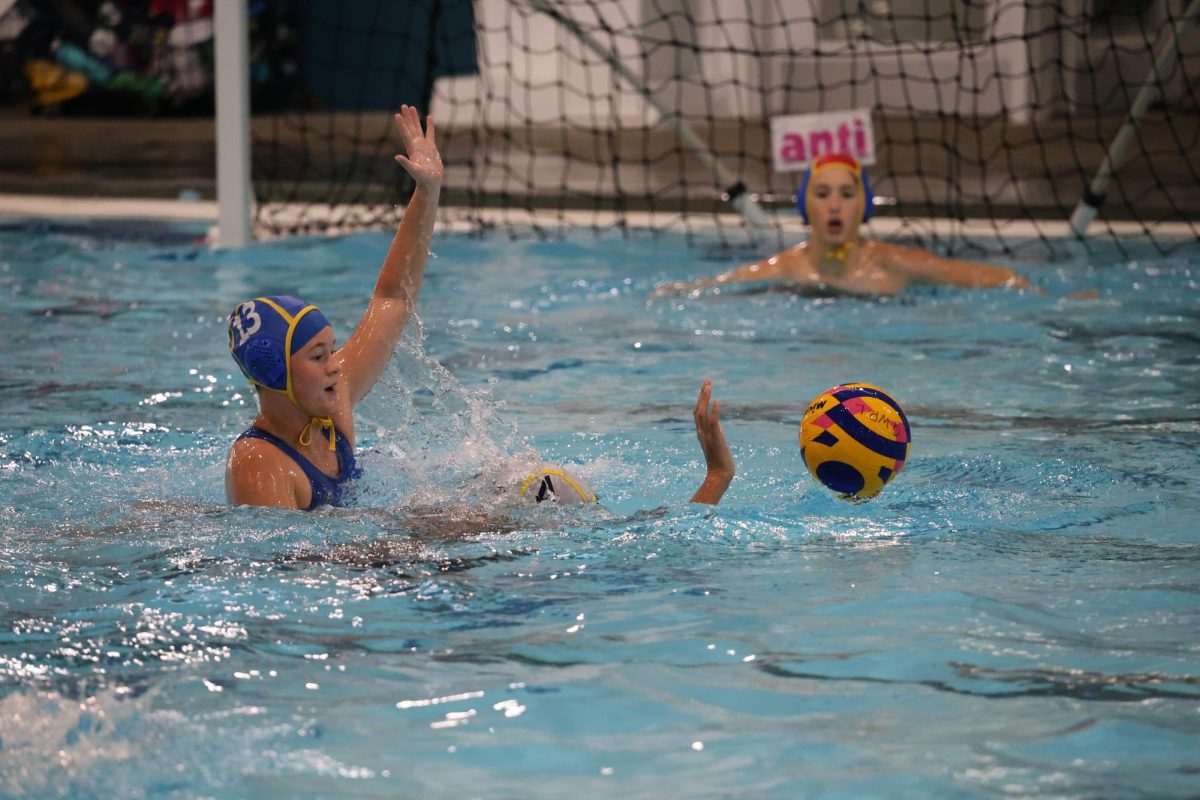Changes of Olympic Proportions
September 3, 2021
The summer Olympics are, for lack of a better word, really cool. The world’s greatest athletes all together in one place, showcasing superhuman strength, speed, and precision–there’s nothing else quite like it. And yet, I’m glad they only take place once every four years.
The problem with the Olympics is that, while the event as a whole is exciting, the individual sports just don’t live up to the hype. Sure, it’s fun to turn on an exotic, niche sport for a few minutes, but once the initial novelty wears off, I quickly find myself losing interest. I guess there’s a reason that I don’t actively seek out synchronized swimming in odd-numbered years.
But what if there was a way to turn up the intensity? Whether or not it’s a good idea, there certainly is a solution.
There’s no better place to start than by tackling the problem of performance enhancing drugs at the Olympics. This issue has been brought to light in the past several years and culminated in the development of Russia being banned from competing for four years, including for the 2020 Tokyo Olympics. But before you misunderstand me any further, allow me to explain: the problem is that not enough athletes are doping. Russia isn’t a problem, they’re just ahead of the curve. We love the Olympics because they feature the best of the best, pushing the limits of what is humanly possible. And there exists a simple solution to push those limits just a bit further, yet instead of encouraging it as we should, we punish it. Changing this culture is the first step towards a new, more exciting Olympics.
Now that we have that out of the way, we can take a look at adjusting some individual sports that I feel could use an improvement. Let’s start with the most disappointing sport of the 2020 Olympics: fencing.
How is it possible to take something as cool as sword fighting and make it lame? By removing the stakes, apparently. When I tuned in to watch Olympic fencing this summer, I was genuinely excited to see some professional sword fighting. Instead, I watched two men, in head-to-toe protective suits, holding floppy swords, circle each other for about five seconds before one of them apparently got poked and they disengaged. Luckily, the sport has an easy fix: less protective gear, sharper swords.
A similar principle can be applied to archery. Archery as a concept is incredibly cool, and yet as an Olympic event, it’s downright boring. So what can be done? First, the targets should be moving. Standing still while shooting at a still target simply lacks any excitement whatsoever. And if we really want to bump up the intensity, maybe archers should be shooting at each other from opposite ends of the range.
Now, let’s look at some water sports. Diving is already pretty cool. Watching the athletes twist and turn in the air as they plummet towards the water brings me immense satisfaction. That said, I think it leaves too much room for error. Here’s what I propose: make the pool smaller to put a bigger emphasis on precision. It would be a much more nerve-racking and suspenseful experience if a diver had to land in a pool with the circumference of a bathtub.
Swimming, as a spectator sport, is pretty average. However, due to the overwhelming number of medals to be won in swimming at the Olympics, it gets more coverage than perhaps anything else. And while I don’t dislike swimming, there is one addition that could instantly turn me into a huge fan: lasers. Here’s what I propose. You know that graphic that NBC puts on the screen when a competitor is chasing a world record?
Yeah–that one. Now just imagine that it’s a laser, and instead of being ahead of the swimmers, it’s nipping at the heels of the slowest swimmer. Don’t pace yourself? ZAP! Can’t keep up with the rest of the pack? ZAP! What can I say, lasers are cool.
Of all the sports at the Olympics, track and field is the most true to itself. The rules to the events are relatively simple, it’s really just athletes performing physical feats with few strings attached. And while I genuinely appreciate this simplicity, I also think that context matters, which is why the pole vault event should certainly include the task of making it over a castle wall in the middle of a siege, while defenders try to throw rocks and boiling oil on the vaulters. Similarly, the long jump could really up the intensity by having competitors leap over a chasm instead of a sand pit. Not deep enough to kill, but maybe to maim.
Additionally, the marathon could be more true to its roots. Marathoners should have a strict time limit to complete the race before a large Persian force descends upon an outnumbered group of Athenians.
So why are so many of these ideas violent? It’s not that I crave violence, I just think it’s exciting. And I’m not the only one–Football is the most popular sport in America for a reason. It’s the same reason that NASCAR viewership went down after the company made rule changes to increase safety. And it’s the same reason the Olympics would be much more popular if these changes were instituted. Still don’t believe me? Take a look at this crude crayon-drawn graph:

As you can see, viewership and violence are irrefutably correlated. But that’s not to say that I don’t have other nonviolent ideas.
The equestrian event could definitely use an update. While I think that the sport is actually pretty neat, there is one question that bugs me: why don’t the horses get medals? They did all the work anyway.
Team handball seems too straightforward. Two teams facing off, trying to get the ball into a goal–it’s not a new concept. And yet, the players can just pick the ball up and throw it? It seems too easy. Maybe handball players should have to do something cool like play with their feet instead of hands, or use a stick while on ice skates, or maybe the goal should be small, round, and hoop-like…
Lastly, I think that fighting sports take themselves too seriously. To take them down a notch, I think the contestants should have to dress like 19th century boxers. While we’re at it, the boxing event should be renamed to “fisticuffs.”
Do I think that any of these changes will be instituted any time soon? Probably not–changes don’t tend to happen quickly under a group of international bureaucrats (this is the only reason, these ideas are perfect otherwise). That said, it’s certainly fun to imagine the beautiful chaos that would follow. And who knows, maybe the Olympic committee really has it out for the people of Athens.











Kun Jin • Dec 17, 2021 at 8:40 am
An excellent work of satire …
However, one must still wonder if the author genuinely wishes harm upon the athletes, or is merely poking fun at the numerous regulations made to sports in modern times to increase safety.